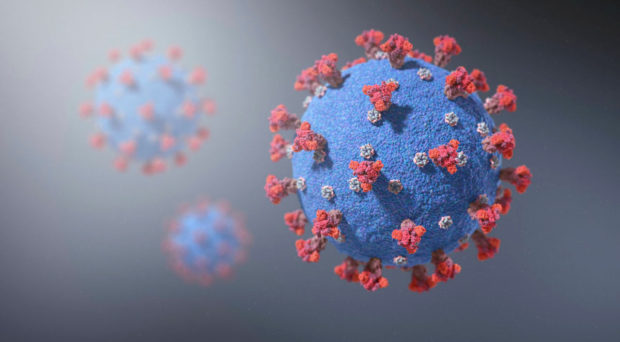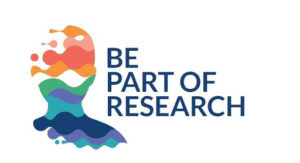
Outside of China and neighboring locations, studies on COVID-19 started to be added to clinical trial registries in March 2020. Registries have responded by updating policies and procedures to make information on clinical research rapidly accessible to all.
Facilitating searching
Following the recognition in February/March 2020 that COVID-19 had spread to locations outside China, the WHO network of primary trial registries has been implementing ways of prioritising COVID-19 research and making it easy to find.
Since 19th March 2020, the WHO has required that all registries ensure that its preferred term ‘COVID-19’ appears in the title of the study. The WHO’s International Clinical Trials Registry Platform (ICTRP), which aggregates all studies from the 17 primary registries plus ClinicalTrials.gov, has enabled a one-click search for COVID-19-related studies (which is also hosted on ClinicalTrials.gov) and a one-click download.
The Australian New Zealand Clinical Trials Registry (ANZCTR) and the EU’s EU-CTR also have one-click searches, while the Chinese Clinical Trial Registry (ChiCTR) has a one-click download into Excel for its more than 600 COVID-19-related studies.

Prioritising processing
Several registries have stated that they will prioritise processing COVID-19 studies. The Brazilian Clinical Trials Registry (ReBec) has extended its existing fast-track processing for studies on Zika virus infection, dengue fever, yellow fever and malaria to COVID-19, with a commitment to register the study within 48 hours. India’s registry CTRI and the ANZCTR are also prioritising COVID-19 study registration.
Links to other information
Other registries are providing links to information on COVID-19. The German registry DRKS has posted a newsletter that includes a link to the Heidelberg Institute for Geoinformation Technology (HeiGIT) COVID-19 trials map, which uses ICTRP data to track the number of studies, location and type of intervention or observation over time.
ClinicalTrials.gov has a banner with links to the Centers for Disease Control and Prevention (CDC) and National Institutes of Health (NIH) coronavirus information pages.
Participation
For studies comparing multiple interventions to be feasible, large numbers of participants are needed. The rapid tailing-off of cases in South Korea might be why there are no COVID-19 studies registered on the South Korean registry CRiS, with only two studies listed in South Korea on the HeiGIT trial map, while there are over 100 studies registered on Iran’s IRCT registry.
The Lebanese registry LBCTR has one COVID-19-related registration, which is investigating the incidence of depression, anxiety, eating disorders and substance use under lockdown.

ISRCTN’s response
Before the WHO’s guidance on search terms was sent, ISRCTN implemented a policy that the terms ‘coronavirus’ and ‘SARS-CoV-2’ must be included along with ‘COVID-19’ in all relevant records to aid searching, including for the public for whom ‘coronavirus’ is a commonly used search term.
During the last two weeks of March 2020, COVID-19 studies were being submitted very soon before the start of recruitment. We have therefore created guidance for trialists on the information they need to collate to facilitate same-day registration. ISRCTN editors created a standard introduction to COVID-19 to be used in the plain English summary where needed.
We have also been working closely with the NHS patient-facing clinical research website Be Part of Research. This site has been working to balance the need for public information with consideration for researchers whose studies are not directly recruiting volunteers and so need to have their contact details withheld, so they are not overwhelmed with requests from patients and concerned relatives.

In late March 2020, ISRCTN tested a process for changing the study recruitment status to ‘Suspended’, thus excluding studies from searches for actively-recruiting studies in Be Part of Research and ICTRP. This test was successful and by May 2020, ISRCTN had sent emails to investigators of all studies in recruitment to prompt them to confirm whether their study had paused recruitment because of the pandemic. In total, 1183 emails have been sent and approximately 500 records have had their recruitment status changed to ‘Suspended’.
We also added a banner to the home page to provide guidance on COVID-19 studies and are planning to update the website FAQs with more detail on how to get a study registered quickly.
As of May 2020, all studies designated as nationally prioritised Urgent Public Health studies by the UK National Institute for Health Research (NIHR) are required to be registered on ISRCTN. The registry has also been collaborating with the UK Health Research Authority (HRA), which manages permissions to conduct research in humans, to ensure that the HRA’s information is as complete as possible.

As of 13th May 2020, ISRCTN has 28 COVID-19 studies registered, with 14 registered prospectively. The studies include 14 recruiting in the UK only or UK and Ireland, 7 recruiting in other European countries, 4 multinational studies and one each recruiting in India, Canada and Ecuador. Why not find out more about these varied studies from this blog? To find out more about ICTRP, take a look at this blog from WHO authors Ghassan Karam and Anna Laura Ross.
Comments